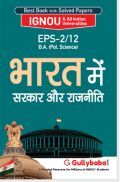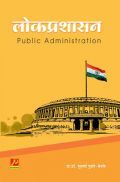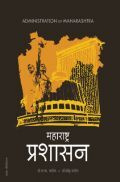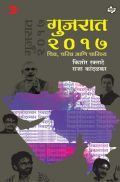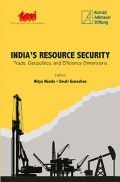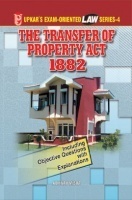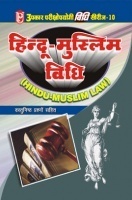About The Book Governance And Poverty Reduction
Book Summary:
Poverty reduction in South Asia is a precondition for sustaining any form of reforms in governance. The new public management reforms which started in South Asia from Sri Lanka taking the initiative in 197778 have been a decisive break from the previously practised State driven protectionist system. Investment in the region has been rising and even per capita income has shown some increase, yet the state has not been able to lead these reforms appropriately and efficiently. Thus poverty has not been reduced, ordinary people continue to languish under government programmes and the socially excluded remain outside the mainstream decision making bodies. Governance in South Asia faces the single most important challenge of poverty reduction which continues to blunt and disfigure capacity, self esteem and service delivery system to the poor. This book attempts to bring out microlevel studies from many regions in South Asia to address issues of entrepreneurship, knowledge and professionalism.
As an initiator of the idea on developing a critique to the straightjacketed best practice research, this book questions the standard practice in evaluating administrative reforms as not being the true base for knowledge. Administrators need to balance capacity and control in every implementation programme. Confining to the knowledge of best practices may conceal enormous amount of information from the less than best practices which may be necessary to sustain good initiatives of public managers.
This book highlights areas of active networking, partnerships and collaborations amongst state and non-state bodies, NGOs and specialist Science and Technical Organizations. The true nature of governance is explained and demonstrated through the processes which otherwise pass off undetected in macro-understanding of governance.
Table of Contents:
CONTENTS
Acknowledgement
INTRODUCTION: Governance, Poverty Reduction and Best Practices, AMITA SINGH
Section I
UNDERSTANDING POVERTY IN SOUTH ASIA
1 CONCEPTUALIZING POVERTY:
The Importance of Stories
STEVEN E. AUFRECHT and RASHMI PRASAD
2 POVERTY ERADICATION: Lessons from History, ALAN MAYNE
3 UNDERSTANDING POVERTY, CAUSE ANALYSIS AND RESPONSE: Case Study of Pakistan, SARFRAZ H. KHAWAJA
4 HOW TO MAKE PUBLIC ADMINISTRATION REFORM WORK FOR THE RURAL POOR?
Potentials and Challenges of Collaborative Governance, REGINA BIRNER
5 ENGENDERING GROWTH FOR
POVERTY REDUCTION: The Pakistan Experience, SARFRAZ KHAN QURESHI
6 GOVERNANCE INTERVENTION FOR ALLEVIATING POVERTY
IN NEPAL, TEK NATH DHAKAL
Section II
POVERTY REDUCTION
Good Practices, Stray Experiments
7 POVERTY ERADICATION through PARTICIPATORY DEMOCRACY: An Experience in West Bengal, DEBJANI SENGUPTA
8 POVERTY AND ITS MANAGEMENT IN PAKISTAN, AQILA KHAWAJA
9. GLOBALIZATION, DECENTRALIZATION AND MICRO-FINANCE: A Study of Self-Help Groups in the District Burdwan, RABINDRANATH BHATTACHARYYA
10 ROLE OF SELF HELP GROUPS (SHGs) IN PROMOTING HUMAN RIGHTS: A Sample Study on a Village of North-24 Parganas District, West Bengal, SANGHAMITRA MAJUMDAR and JHUMPA GHOSH ROY
11 POVERTY ERADICATION THROUGH TECHNOLOGY INTEGRATION IN SRI LANKA
S.W.S.B. DASANAYAKA
Section III
CASE STUDIES
Making Services Reach Ordinary People
12 RESOLVING THE QUAGMIRE OF SERVICE DELIVERY IN NEPAL, NARENDRA RAJ PAUDEL
13. CAPABILITY APPROACH AND THE DISTRIBUTION OF LAND, HOUSING AND ACCESS TO METRO IN THE NATIONAL CAPITAL TERRITORY OF DELHI,
ASHOK KUMAR
14. LIFE AND LIVELIHOOD OF THE POOR CHILDREN LIVING IN METROPOLIS DHAKA: Problems, Prospects and Challenges, TAIABUR RAHMAN
15 POVERTY, FEMALE LABOUR MIGRATION AND RURAL DEVELOPMENT: A Gendered Study
Based on Sri Lankan Context,
WASANA S. HANDAPANGODA and
M.H. AJANTHA SISIRA KUMARA
16 WOMENS PARTICIPATION AND LEADERSHIP IN ICTs: An Action Agenda for Global Change, CLAUDIA MORRELL
17 TELE-MEDICINE IN KARNATAKA
Good Practice and Technology in a Public-Private Partnership, JAMES WARNER BJRKMAN and A. VENKAT RAMAN
18 ASSESSMENT OF IMPLEMENTATION OF EMPLOYMENT GUARANTEE SCHEME IN INDIA: A Spatial Dimension
MAHI PAL and S.P. SINGH
19 AN EVALUATION OF SAMURDHI PROGRAMME IN SRI LANKA
(With Reference to Ten Villages in Panadura Divisional Secretariat)
FERNANDO R. LALITHA S.
20 DECENTRALIZED PLANNING AND POVERTY ALLEVIATION: A Case Study of Two Village Panchayats in Kerala State (India), E.M. THOMAS
21 GOVERNANCE, SOCIAL ACCOUNTABILITY, AND CIVIL SOCIETY: Liberalism Bypassing Politics?
RAZA AHMAD









